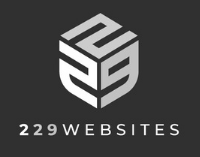How Much Does A Website Cost
Understanding key factors in website pricing

How Much Does a Website Cost? Pricing and Budgeting Guide for Web Development
Estimating the cost for a high-quality website doesn't need to feel like taking a shot in the dark. You may think that pricing and budgeting are complicated, but the truth is quite different—it's just a matter of understanding your needs and options. In this blog post, we're going to demystify the intricate maze of web development costs by providing you with a comprehensive guide. From choosing a domain name to selecting efficient website features, you'll discover how to allocate your resources wisely. Whether you are a startup, an SME or a large corporate aiming for digital transformation—this guide will help navigate your journey towards web existence without burning through your budget. Stay tuned as we dive into the nitty-gritty details of website costs!
The cost of building a website can vary depending on various factors such as the complexity of the design, functionality required, and the level of customization. Generally, website costs can range from as low as $9.99 per month for using website builders to over $10,000 upfront if you hire a professional designer. It's recommended to consider factors like domain registration, hosting, SSL certificate, template/theme, ecommerce functionality, content creation, apps/integrations, and SEO/marketing while estimating the total cost.
Calculating the Cost of a Website
When it comes to determining the cost of a website, there are various factors that need to be taken into account. The type, structure, size, and design of the website all play a role in influencing the overall cost. Additionally, different levels of website development can have varying price ranges.
For example, web builder-based websites that are relatively simple and basic can cost up to $1000. These websites are typically built using pre-made templates and require minimal customization. On the other end of the spectrum, complex websites with advanced functionalities can cost well over $150,000. These websites often involve intricate designs, advanced features, and extensive backend development.
Let's say you're looking to develop a basic website with minimal functionalities. In this case, you can expect to pay anywhere between $10,000 to $20,000. This range takes into consideration factors such as design complexity, content management systems (CMS) integration, and e-commerce capabilities. It's important to note that these figures are just estimates and actual costs may vary depending on individual project requirements.
So how do these factors contribute to the final cost? One key aspect is the type of website you want to build.
- Determining the cost of a website depends on factors such as the type, structure, size, and design of the website, as well as the level of development needed. Basic constructor-based websites can cost up to $1000, while complex websites with advanced functionalities can exceed $150,000. For a basic website with minimal functionalities, the estimated cost ranges from $10,000 to $20,000. These numbers are just estimates and may vary based on individual project requirements. The type of website plays a significant role in determining the final cost.
Domain and Hosting Plans
To make your website accessible on the internet, you'll need two essential components - a domain name and web hosting. A domain name is the unique address that users will type into their browsers to visit your site (e.g., www.example.com), while web hosting refers to the server where your website's files are stored and made available for visitors.
The cost of domain names can vary depending on factors such as popularity and extension (.com,.org,.net). Generally, domain names can range from a few dollars per year to hundreds or even thousands of dollars for highly sought-after names.
For instance, a common domain name with a .com extension can cost around $10 to $20 per year. However, if you're after a more unique or premium domain name, the price can increase significantly.
Moving on to web hosting, there are various types of hosting plans available, each with its own pricing structure.
Think of web hosting plans as different types of accommodations. Just like different hotels offer various amenities and services at varying costs, hosting plans provide different levels of resources and features for your website.
Shared hosting is the most affordable option, with costs ranging from $2.95 to $49.99 per month. It's suitable for small websites with low traffic and resource demands. VPS (Virtual Private Server) hosting offers better performance and security and typically costs between $24.99 and $89.82 per month. Dedicated hosting, which provides a dedicated server for your website, is the most expensive option ranging from $99.97 to $149.98 per month.
Cloud hosting is another option that provides scalability and increased uptime, but it comes at a higher price compared to traditional hosting plans.
While cloud hosting can be more expensive, it offers benefits such as flexibility in terms of resource allocation and better resilience against server failures. It's worth considering if you anticipate significant traffic spikes or require high availability for your website.
Finally, managed WordPress hosting specifically caters to WordPress sites, offering optimized performance and security features tailored for the platform. Prices for managed WordPress hosting plans can start as low as $2.95 per month.
For example, Bluehost offers managed WordPress hosting plans starting at $2.95 per month, making it a reliable and budget-friendly choice for those using the WordPress content management system.
When budgeting for your website, it's essential to consider both domain and hosting expenses. Remember that pricing plans may vary depending on contract lengths and promotional periods. It's crucial to choose a hosting plan that aligns with your budget while offering the necessary features and resources for your website's unique needs.
Design and Development Charges
The design and development of a website are key components that significantly impact the overall cost. A well-designed and user-friendly website is crucial for attracting and engaging visitors, while efficient development ensures smooth functionality. When considering design and development charges, several factors come into play.
First and foremost is the size and complexity of the website. A simple blog or portfolio site with a few pages may incur lower costs compared to an e-commerce store with numerous product pages and complex features. The more intricate the design and functionality required, the more time and effort it takes to develop, resulting in higher charges.
To illustrate this point, imagine creating a basic 5-page website for a small local business versus building a fully functioning online store with payment gateways, inventory systems, and customer management functionalities. The latter would require additional development time and expertise, thus increasing the costs.
Another consideration is whether you opt for professional services or utilize online tools with pre-made templates. Hiring professional web designers and developers provide a tailored approach to suit your specific needs, while online tools offer convenience but may have limitations without access to premium features. Professional services may involve hourly rates or flat fees based on their expertise and experience.
Additionally, it's essential to take hosting costs into account. Hosting plans vary based on factors such as website traffic volume and data storage requirements. Shared hosting plans are suitable for small business websites with moderate traffic, while e-commerce sites with higher traffic demands may require dedicated server hosting or cloud-based solutions. These hosting options differ in terms of price points and performance levels.
With an understanding of the factors influencing design and development charges, let's now explore how digital services can further contribute to website costs.
Influence of Digital Services on Website Cost
When budgeting for web development, it's essential to consider additional services that enhance your website's performance and visibility. These services include SEO (Search Engine Optimization) and marketing expenses, which can significantly impact the overall cost.
SEO plays a vital role in driving organic traffic to your website. Optimizing your site's content, structure, and keywords helps search engines recognize its relevance and rank it higher in search results. SEO services can range from basic on-page optimization to comprehensive strategies that encompass keyword research, content creation, link building, and competitor analysis. The cost of SEO can vary depending on the agency or expert you engage.
For instance, an SEO agency might charge a monthly retainer fee of $500-$5,000 based on the scope and complexity of the work required. If you're working with a limited budget, it's important to evaluate what level of SEO investment will deliver maximum value for your specific business objectives.
Marketing expenses such as online advertising campaigns can also contribute to website costs. Advertising platforms like Google Ads or social media ads require careful planning, targeting, creative development, and ongoing management. These campaigns may have commission fees based on total ad spend or a flat fee structure charged by marketing agencies.
It's crucial to assess your marketing budget and understand the potential return on investment from various digital advertising channels. Consider factors like target audience reach, conversion rates, and the competitiveness of your industry before allocating funds accordingly.
Now that we've explored the influence of digital services on website costs let's summarize some key takeaways before concluding our discussion.
SEO and Marketing Expenses
When considering the cost of a website, it's essential not to overlook the importance of investing in SEO (Search Engine Optimization) and marketing. While web development focuses on creating a functional and visually appealing site, SEO and marketing play a crucial role in driving traffic to your website and increasing its visibility online.
Imagine you have a beautifully designed website with excellent user experience, but it's buried under countless other websites in search engine results. Without SEO efforts, potential customers may never find your site. By investing in SEO, you can optimize your website's content, structure, and meta tags to improve its rankings on search engines like Google.
Implementing effective SEO strategies involves conducting keyword research, optimizing page titles and URLs, creating high-quality content, building backlinks, and continuously monitoring and adjusting your efforts based on analytics data. These activities can be time-consuming and require expertise in the field. Therefore, it might be worth considering partnering with an experienced digital marketing agency or hiring SEO specialists to ensure optimal results.
In addition to SEO, allocating a portion of your budget for marketing initiatives is crucial for attracting visitors to your website. This can include tactics such as social media advertising, email marketing campaigns, influencer collaborations, paid search engine ads, and content marketing strategies.
Now that we've explored the importance of investing in SEO and marketing expenses when budgeting for a website let's move on to comparing web development costs across different platforms.
Comparing Web Development Costs Across Platforms
When it comes to web development costs, it's important to consider the platform or method you choose for building your website. There are various options available depending on your needs and budget:
- Custom Web Development: Building a custom website from scratch offers the greatest flexibility in terms of design and functionality but typically comes with a higher price tag. Hiring an experienced web development team or agency will ensure that every aspect of your website is tailored to your specific requirements.
- Website Builders: Website builders like Wix, WordPress.com, and Squarespace offer an affordable and DIY approach to web development. These platforms provide user-friendly interfaces, pre-designed templates, and drag-and-drop functionality. While they may be more budget-friendly, customization options can be limited, and you might need to rely on plugins or extensions for specific features.
- Open-Source Content Management Systems (CMS): Platforms like WordPress.org and Joomla offer the advantage of being open-source, meaning they are free to use and highly customizable. However, customization often requires coding knowledge or hiring a developer. The cost of using these platforms mainly revolves around hosting and any premium themes or plugins you choose to enhance your website's functionality.
- E-commerce Platforms: If you're running an online store, e-commerce platforms like Shopify and WooCommerce offer specialized solutions tailored for selling products online. These platforms come with comprehensive features such as inventory management, payment gateways, and shipping integrations. Pricing varies based on the plan you choose, additional features required, and transaction fees for processing payments.
- Outsourcing Web Development: Another option is outsourcing web development to offshore agencies or freelancers. This can provide cost savings but also comes with potential challenges such as communication barriers and varying quality standards. It's crucial to thoroughly research and vet any outsourcing partners before making a decision.
Choosing the right platform for your web development needs is like selecting the right tool for a job - different tools have different costs and functionalities that should align with your requirements.
Remember that development costs can also vary based on factors such as the complexity of design, number of pages, integration of third-party systems, database requirements, and ongoing maintenance needs.
Now that we've explored the various web development platforms and their associated costs let's move on to tips for selecting an affordable web development company that meets your needs and budget.
Tips for Selecting an Affordable Web Development Company
When it comes to selecting a web development company to bring your online vision to life, finding one that fits within your budget is crucial. But affordability shouldn't be the sole factor influencing your choice. You also want a company that delivers high-quality work and understands your unique needs. So here are some tips to help you select an affordable web development company without compromising on quality:
First and foremost, it's essential to identify your business requirements and discuss them with potential web development companies. This initial conversation will give you a sense of whether their services align with your goals and if they can provide solutions within your budget. For example, if you require a simple brochure website, it might not make sense to hire an agency that specializes in complex e-commerce sites, as their rates may be higher.
Listening to your ideas and offering an outside perspective is another important characteristic to look for in an affordable web development company. A good agency will be open-minded and willing to collaborate with you, bringing fresh insights while respecting your vision. Their ability to strike this balance between incorporating your ideas and leveraging their expertise is key in creating a successful website.
An extensive portfolio of previous work and case studies is a valuable asset when evaluating a web development company's capabilities. By examining their past projects, you can assess whether their work meets your expectations and if their solutions add value to businesses similar to yours. For instance, if you're in the e-commerce industry, looking at websites they have developed for other online stores can give you an idea of their competence in that particular niche.
Establishing a budget early on is crucial in selecting an affordable web development company. Before approaching agencies, determine what you're willing to invest in your website and clearly communicate this during consultations. This will allow the companies you engage with to provide accurate quotes based on your specific requirements.
The responsiveness and compatibility of the website design across different devices and browsers are vital factors to consider. An agency that ensures your website is mobile-friendly and responsive will help you reach a wider audience and provide a better user experience.
Discussing content management systems (CMS) is also essential before making a decision. A reliable web development company will encourage the use of an intuitive CMS that allows you to make updates and manage content easily, empowering you to maintain your website after it's launched without incurring additional costs.
Experience serving different industries and understanding strategies specific to various business types is another quality to look for in an affordable web development company. They should have a diverse clientele and be able to adapt their approach based on your industry requirements.
Balance is key when it comes to web design trends. A good web development company will stay updated with modern trends while also relying on tried-and-proven techniques that have demonstrated success in converting visitors into customers. Make sure the agency understands the importance of conversion optimization and can guide you accordingly.
Confirming whether the agency actively improves their strategies and goals after launching the website is crucial. This indicates their commitment to continuous improvement and helps ensure the long-term success of your online presence.
Lastly, consider checking if the web development company has won any awards for excellence in web design. While not essential, such recognition can be an indicator of the quality and reliability of their services.
Remember, selecting an affordable web development company is about striking the right balance between cost and quality. By following these tips and thoroughly researching potential agencies, you can find one that meets both your budgetary constraints and your expectations for a successful online presence.
- In 2023, using a website builder is currently the most affordable option for creating a website, with prices beginning at around $9.99 per month.
- On average, maintaining a website can cost around $50 per month and an upfront cost of approximately $200. This primarily applies to Wordpress sites as most modern cloud based website platforms require little to no maintenance on you part though.
- The initial design and build of a more complex or specialized website (e.g., for a medical clinic), can range between $5,000 and $8,000 depending on the exact services and intricacies involved.
What are the ongoing costs associated with running a website?
The ongoing costs associated with running a website can vary, but some common expenses include hosting fees, domain name renewal fees, SSL certificate renewals, and maintenance costs. Additionally, if you have an e-commerce website, there may be additional expenses such as payment processing fees and transaction fees. According to a survey by Netcraft in 2022, the average monthly cost for website hosting ranged from $10 to $150, depending on the type and size of the website. Many hosting plans include SSL certificates and basic maintenance at no additional fee, so make sure. you check for these potential hidden costs when shopping around for hosting.
Are there any hidden costs or additional expenses that I should be aware of when budgeting for a website?
Yes, there can be hidden costs or additional expenses when budgeting for a website. These can include ongoing maintenance and updates, domain name renewal fees, web hosting fees, SSL certificates for secure connections, premium plugins or themes, content creation and copywriting services, SEO optimization, and digital marketing campaigns. According to a survey conducted by Upwork in 2022, 34% of businesses reported spending over $5000 on website development and maintenance annually. It's important to consider these factors to have an accurate budget for your website project.
Can I build a website myself or do I need to hire a professional?
It depends on your technical skills, time availability, and the complexity of the website you want to build. While DIY website builders like Wix and Squarespace make it easy for beginners to create basic websites, hiring a professional web developer ensures a more customized and professionally designed site. According to a survey by Clutch in 2022, 63% of small businesses believe that professional web design is worth the investment as it enhances their online presence and generates higher customer engagement. So, if you're looking for a more polished and effective website, hiring a professional is generally recommended.
What factors determine the cost of building a website?
The cost of building a website is determined by various factors such as the complexity of the design, the number of web pages, the features and functionalities required, e-commerce integration, content management system selection, and additional services like hosting and maintenance. According to a survey conducted by Upwork in 2022, the average cost range for a small business website is $2,500 to $7,500, while a more complex website for larger businesses can range from $10,000 to $50,000 or more.
Are there different price ranges for different types of websites?
Yes, there are different price ranges for different types of websites. The cost of a website depends on various factors such as the complexity of design, functionality required, number of pages, e-commerce capabilities, and the level of customization. According to a 2022 survey by Clutch, the average cost of a basic informational website like a local restaurant website or a small law firm website is around $2,500-$10,000, while more complex websites with advanced features like e-commerce can range from $10,000 to upwards of $100,000. Additionally, custom websites tailored to specific business needs can have even higher costs.

SEO Services
West Virginia
- Morgantown WV
- Huntington WV
- Martinsburg WV
- Parkersburg WV
- Wheeling WV
- Beckley WV
- Fairmont WV
- Clarksburg WV
- Princeton WV
Virginia
- Richmond VA
- Virginia Beach VA
- Alexandria VA
- Arlington VA
- Chesapeake VA
- Norfolk VA
- Fairfax VA
- Roanoke VA
- Fredericksburg VA
- Charlottesville VA
Ohio
- Columbus OH
- Cleveland OH
- Cincinnati OH
- Dayton OH
- Toledo OH
- Akron OH
- Canton OH
- Youngstown OH
- Dublin OH
- Westerville OH
Kentucky
- Louisville KY
- Lexington KY
- Bowling Green KY
- Paducah KY
- Owensboro KY
- Florence KY
- Elizabethtown KY
- Richmond KY
- Frankfort KY
- Ashland KY
North Carolina
- Charlotte, NC
- Raleigh, NC
- Durham, NC
New Jersey
- Morristown, NJ
- Jersey City, NJ
- Hoboken, NJ
- Long Beach Island, NJ
- Cherry Hill, NJ
Florida
- Orlando, Florida
- Tampa, Florida
- Jacksonville, Florida
Website Design Services
West Virginia
Virginia
Ohio
MAIN OFFICE
Have a question?
Email us
We will get back to you as soon as possible
Please try again later








